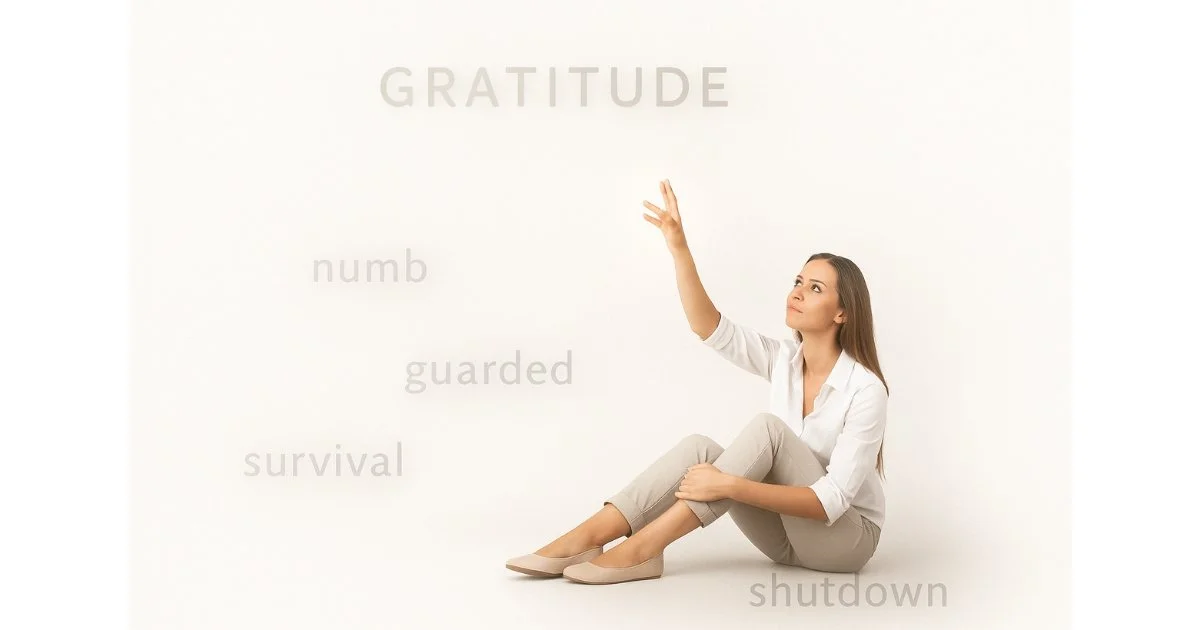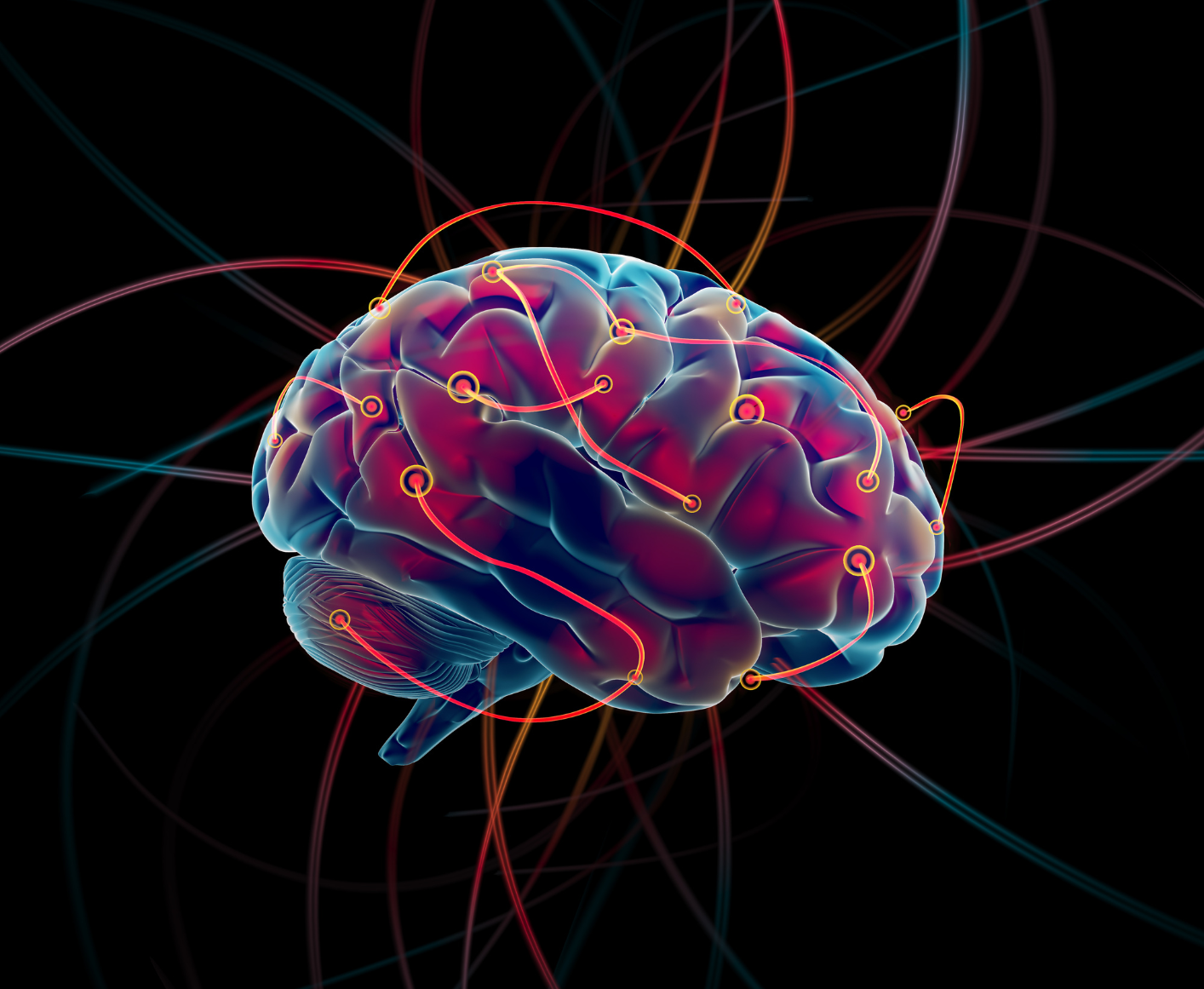When Gratitude Feels Out of Reach
When gratitude feels out of reach, it’s not resistance to being grateful.
It’s your brain doing what it was trained to do.
Gratitude is beautiful.
Healing.
Transformational.
But for some people, it feels completely out of reach.
Not because they don’t want to feel it.
Not because they aren’t trying hard enough.
But because their brain isn’t ready.
And that doesn’t mean they’re broken.
It means their nervous system is still doing its job: keeping them alive the way it learned to.
We Can’t Force the Brain to Trust
When someone has lived in survival mode—
navigating emotional chaos, relational trauma, or just the quiet wear-and-tear of not being safe in their own skin—
feelings like peace or gratitude can feel unfamiliar or even threatening.
It’s not that those emotions are bad.
It’s that they require a level of vulnerability that the brain may not yet believe is safe.
Your unconscious mind doesn’t care how much you want to feel better.
It cares about what it’s learned is protective.
And if feeling guarded, numb, or braced for the worst kept you safe before, your brain will keep running that pattern—
until it learns a better way.
You Don’t Need to Force the Positive
You need to understand the value of the negative.
In my work, I don’t push people to reach for “higher” emotions.
I invite them to make space for what’s already there.
That might mean anger.
Or sadness.
Or total emotional shutdown.
And that’s okay—
because the unconscious mind is always trying to help.
Even if it doesn’t feel that way.
Everything the brain does, it does with a positive intention—
an attempt to protect, to soothe, to prepare, or to prevent harm.
When we explore those patterns, we’re not indulging them.
We’re giving them a voice—
so the system can stop clinging to outdated strategies and start learning new ones.
You’re Not Stuck. You’re Patterned.
And patterns can be rewired.
Through conversational hypnosis, NLP, and brain-based tools, I help people uncover what their brain is trying to do—
and offer it a better way to do it.
We don’t override pain with forced positivity.
We teach the system to feel safe enough to move forward.
And when the brain finally trusts that it doesn’t have to stay on high alert?
That’s when gratitude starts to come in—
not as a performance, but as a quiet, natural response to life.
This Is the Real Work
Not bypassing the pain.
Not pretending it’s all fine.
Not covering discomfort with affirmations.
But creating space to hear what your brain’s been trying to say—
and helping it feel safe enough to learn a new way to live.
If gratitude feels far away, you’re not failing.
Your system may just still be doing the only thing it’s ever known to do:
protect you.
That can change.
And when it does, gratitude will stop feeling like a struggle—and start feeling like something that’s truly yours.
👉 Ready to work with your brain instead of against it?
Click the link below to schedule a time to talk.
👉 Want to learn how I help people retrain their patterns for peace and possibility?
Or stay connected — join my newsletter for brain-shifting insights, practical tips, and real talk that actually helps.





